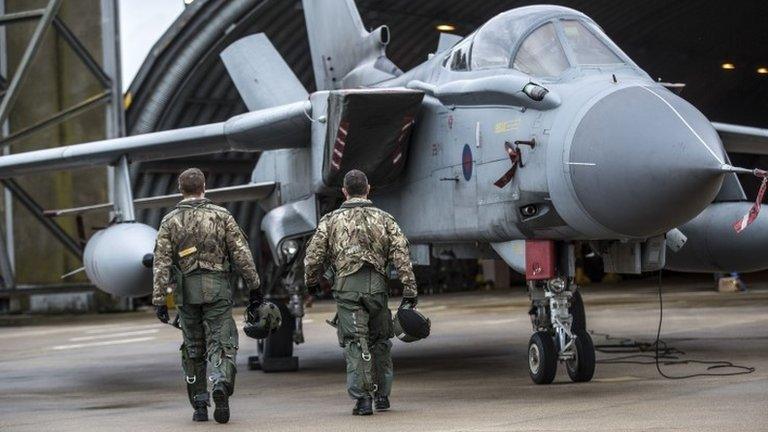Will we be bombing Syria by the end of the week?
- Published
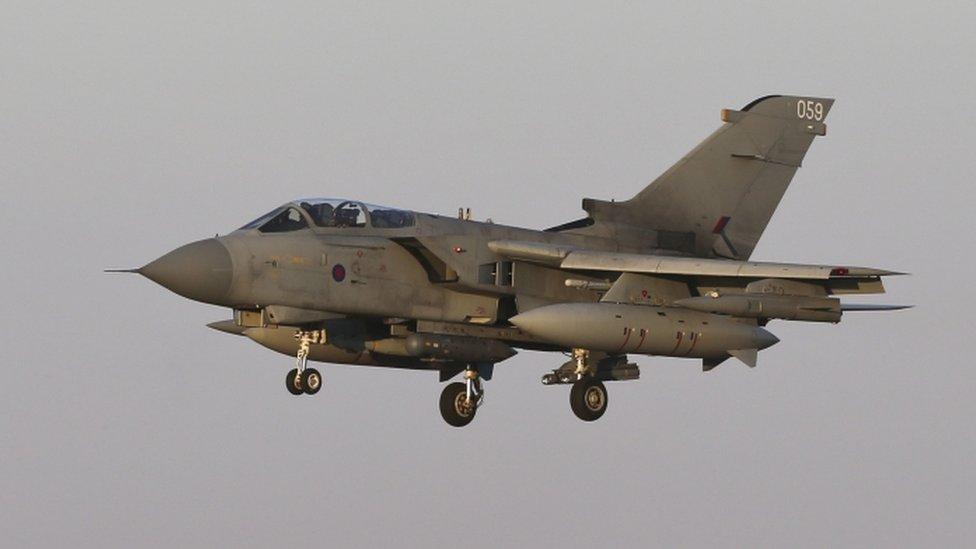
Will we be bombing Syria by the end of the week?
It seems glib even to ask that question in just one sentence, yet that is what MPs and many of the public will be asking, after the prime minister announced his intention to call a vote on extending air strikes to Syria on Wednesday.
By the prime minister's calculation, the answer must be, we may well be. Defence sources say that the RAF could move extremely fast following parliamentary approval. And the less straightforward assessment of whether the government will get the numbers in the vote, has clearly been answered within government with a confident yes.
David Cameron was always adamant that he would only take the question to the House of Commons if he could be absolutely sure of getting a majority.
A fair number of MPs are yet to decide, so numbers could fluctuate in the coming days. But a totting up of the likely sums suggests that ministers are secure of getting what they want.
Informed guesses in Westminster suggest around 380 MPs might be ready to vote for action, with only around 260 or so opposing - a comfortable majority by any stretch.
Corbyn's compromise
But the PM has bigger, long-term questions to ask about the bombing campaign if he gets his way. Will it make any difference? Are there really troops on the ground we can trust? What's the exit strategy? Intervention in Libya gave him short term success, but a long-term headache.
But what happens in Syria has already shaped the Labour party's fortunes.
Jeremy Corbyn says that he wants to be the next prime minister. But under his leadership Labour has been unable to make up its collective mind on whether RAF jets should start dropping bombs from Syrian, as well as Iraqi skies - military action, the most serious of decisions politicians can make.
Yet this politician so endeared himself to Labour members because of his opposition to Iraq, and other military interventions.
With many of them on his side, but many MPs supporting action, a clash was inevitable.
Managing that dilemma has been damaging itself. Just yesterday, the Labour leader was still publicly insisting that he hoped to find a collective position, and that he, as leader, would make the decision.
But he didn't have enough authority today to persuade his senior colleagues to come onside.
By compromising on a compromise, Mr Corbyn has stepped back from a major bust up with his shadow cabinet. But again on Monday evening, he was lambasted by MPs at their parliamentary meeting, not on his principle, but how his political operation has in the last few days tried to persuade MPs to agree with him.
The position the party is now in, having avoided resignations and a terminal bust up, maybe preferable, but it's the most painful lesson as leader that this politician of principle has had to learn about pragmatism.
In just three short months in the job, there have already been plenty of others.
- Published1 December 2015
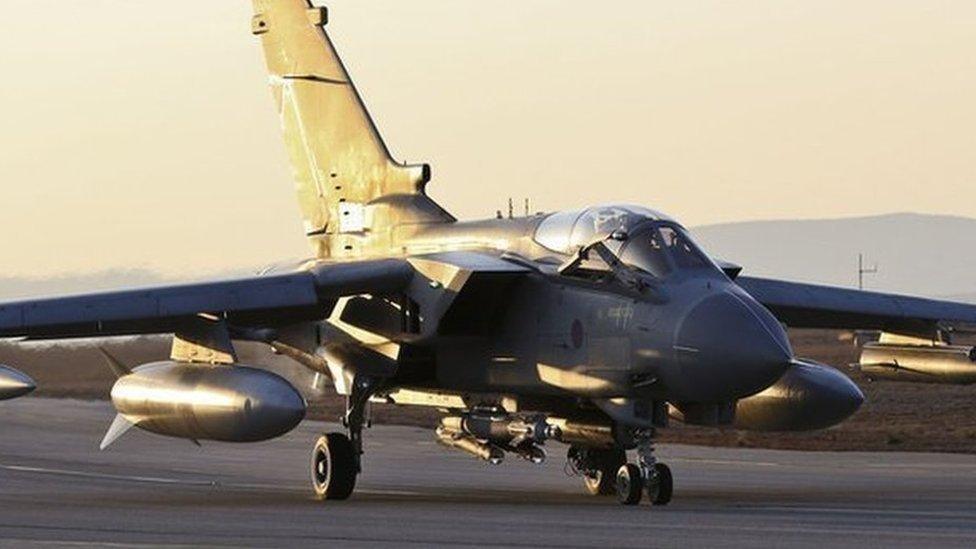
- Published30 November 2015
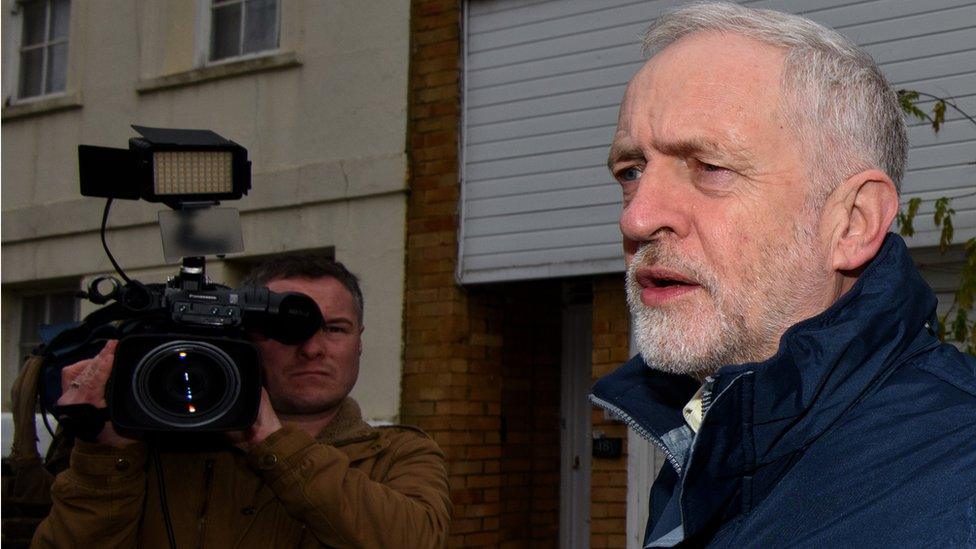
- Published26 November 2015
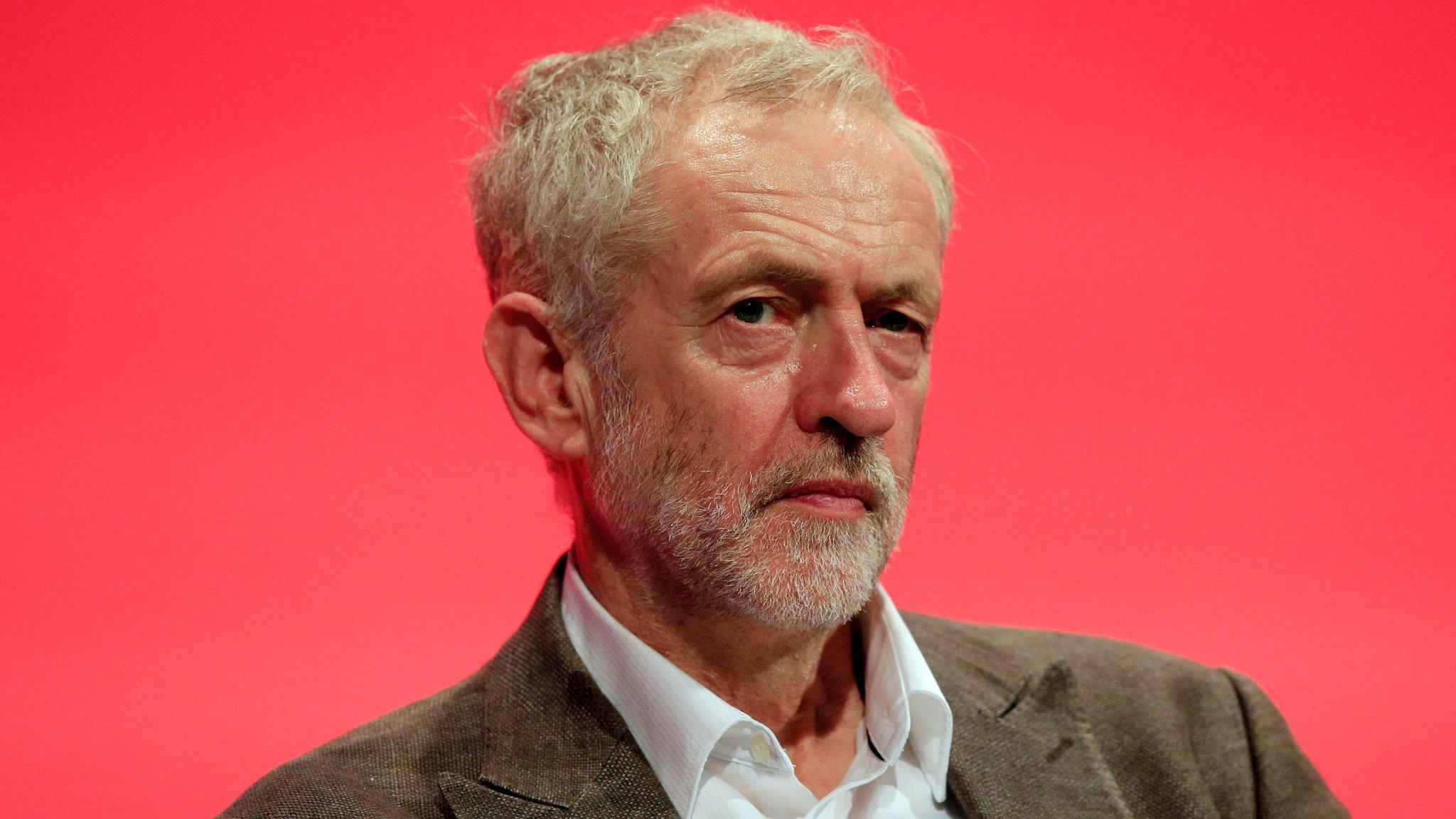
- Published30 November 2015
